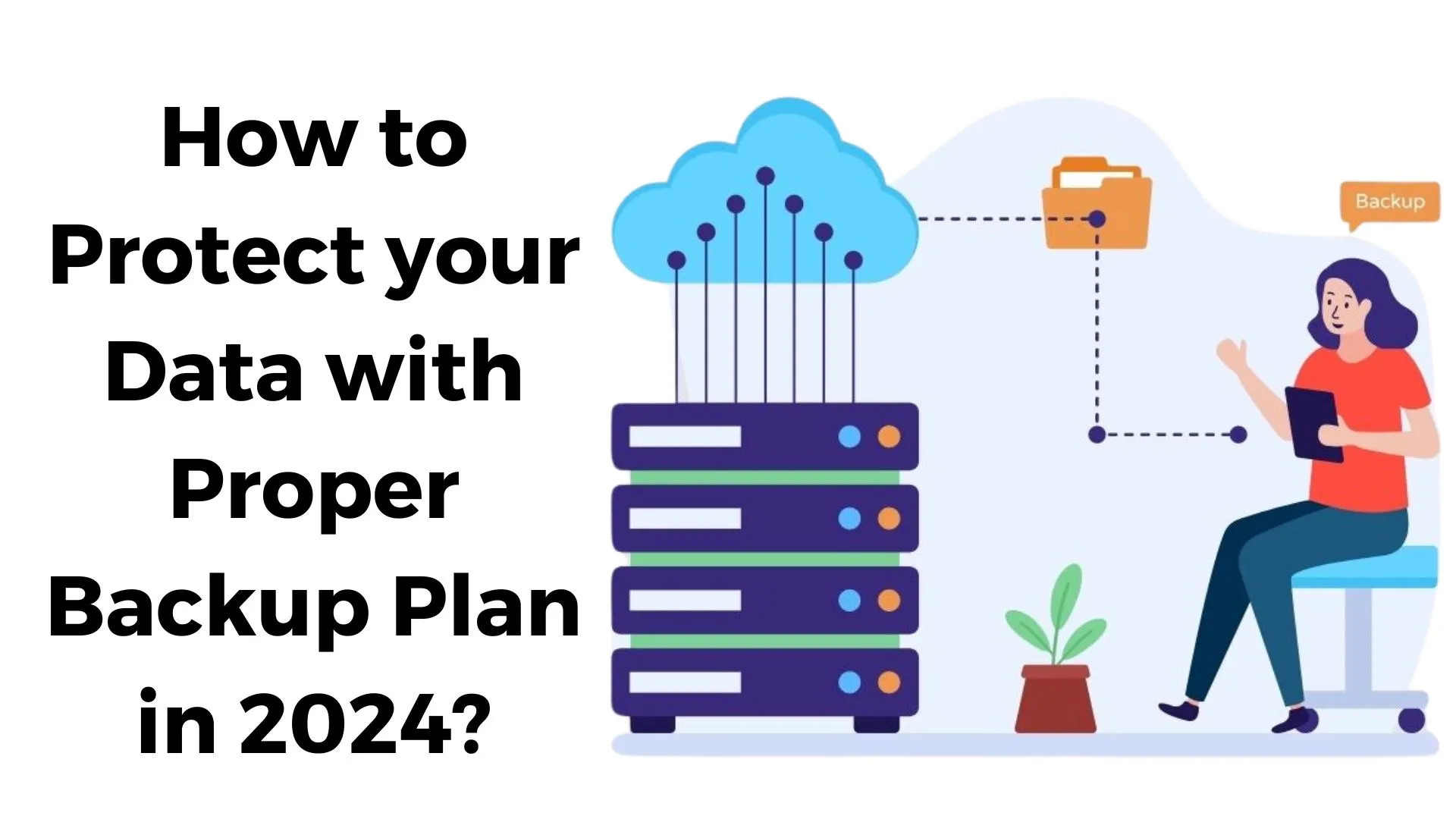
Proper Backup Plan in 2021:
‘Data is the new oil’ has now become a buzzword in a world that is rapidly moving towards moving most businesses online. This puts a lot of onus on the company to secure the data. Many large companies spend an enormous amount on cybersecurity. But having a good cybersecurity infrastructure is just half of the solution. The other half is to prepare oneself for any unforeseen circumstances. Every business needs to have a regular and well-maintained data backup strategy. You could formulate a data backup plan after considering the following factors-:
Your company’s requirements:
- You need to decide on what data you need to Backup and what you don’t need to Backup.
E.g. you don’t need to back up the profile picture of a customer’s account but you need to back up their financial transaction history
- What type of backup infrastructure do you need? Do you need a 50 GB backup per day or 100 GB? Do you need an on-site physical backup or a Cloud-based backup?
- For how long do you need to save the backup? Some companies don’t need past data beyond a few months while some need to access data that goes back half a decade
- Frequency of backup: Do you need an hourly backup of data or a daily backup of data?
Deciding the Optimum Backup Strategy:

- Software Backup: This strategy involves installing backup software on a virtual machine. If you are on a tight budget, software backup will be the correct option for you
- Hybrid Backup: This is a combination of cloud and software backups and provides you with multiple avenues to restore data.
- Storage Options: You can store your data locally on disks. But this method has a loophole. In any unforeseen circumstance that your drive gets damaged, you will lose your data. You can also store your data at NAS (Network Attached Storage) or SAN (Storage Area Network). Or you can go old school and store data on Tapes.
Speed:
Having a good backup plan is of no use if it can’t be restored in a quick time. Time is money and every moment of delay will cost you business. You need to clarify beforehand with your vendor how much time they will take to restore your data in case of any unfortunate event.
- RTO (Recovering Time Objectives): This is the time that tells you how long it will take to restore normal operations.
Budget:
- Cloud is considered one of the most economical solutions in backup plan services while Dedicated Hardware is considered an expensive solution. Depending on your requirements, you need to decide where you want to spend it.
- Another factor that affects your budget will be decided by what type of support you need. Do you need your hosting provider to manage your backup for you or do you have the technical expertise and manpower to manage your data backup in-house? Or do your employees need training from the hosting company to manage backup?
- You need to also check on renewal costs. Some companies offer a cheap plan for the initial year or quarter but then have expensive renewal costs for the next year or quarter. When migration is difficult, the customer gets stuck and pays the price instead of starting again from a different company.
- In some cases, the budget is also fragmented depending on the number of devices that have access to the backup. These factors seem insignificant at first but appear as hidden costs as your business needs change, which then becomes necessary for you to pay.
Also read, A Detailed Guide to Different Types of Web Hosting
Finalizing on the Vendor:

Companies have diversified strategies and have different vendors with different plans. They prefer a mix of cloud, hardware, software, and backups. In some cases, a combination of such plans is also bought from the same vendor.
Choosing a vendor is a very significant task. You should ask for proposals from all prospective vendors and compare on following factors-
- Final Cost of implementation including all hidden costs
- Options and deliverables that are included in the backup plan
- The expected timeline of the backup plan implementation.
You should also check for reviews and market references and keep an idea of the vendor’s reputation.
Create your Timeline:
While negotiating with your vendor regarding the timeline of backup plan implementation at your company, you should also have the time frame of your expectations to ensure minimum disruption to your business.
- What are your requirements even before the beginning of setting up their data backup plan? Do you want a backup of the current data?
- How will your current business be impacted by the installation? How much disruption will it cause?
- How will the project affect your current clients?
Also read, A Brief Guide to Understand Dedicated Server Hosting
Security:
In case your data is confidential or involves financial transactions, security should be of paramount importance for you. You need to take care of some of the following points-
- Has the data center where your backup is stored passed the annual SSAE 16 audit, signifying that the data center meets industry standards
- Do you need to ensure your data’s security even before it reaches the data center? Is there proper encryption?
- Who will have access to the data? If there is a physical hardware backup, will there be 24*7 surveillance and enough physical security?
Testing:
The final step in setting up your data backup plan is testing. You need to ensure that data restoration is smooth and goes on without any glitches. Testing may involve the following things-
- Virtual Machine Recovery: Can you recover the virtual environment of your server? How much application data can be restored?
Also, you should be regularly conducting testing to keep yourself updated on any problems that might have arisen.
CONCLUSION:
An honest analysis of the above factors will help you decide the perfect backup plan for you. You can be firm for some points but flexible for others. This will depend on the type of data you want to secure and your company’s requirements.
While buying a website server hosting plan, many companies give secondary importance to backup as they have faith in their robust system. Companies consider it an extra investment that should be minimized. But the truth is that any responsible company needs a backup plan.
The backup plan must not be considered as a burden, but rather it should be considered as an investment for the future. When you can secure data in any unforeseen circumstance, you build brand value and trust among your clientele. When your customers can trust you with their data, they will not only stay for long but will also bring other customers with them.
 Register
Register
